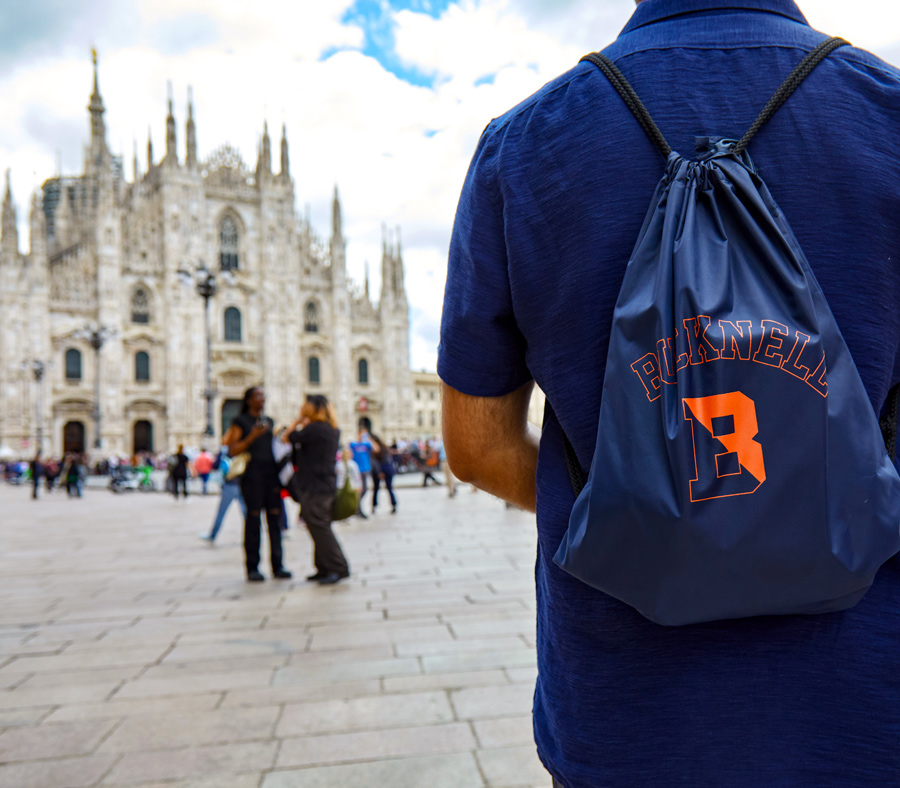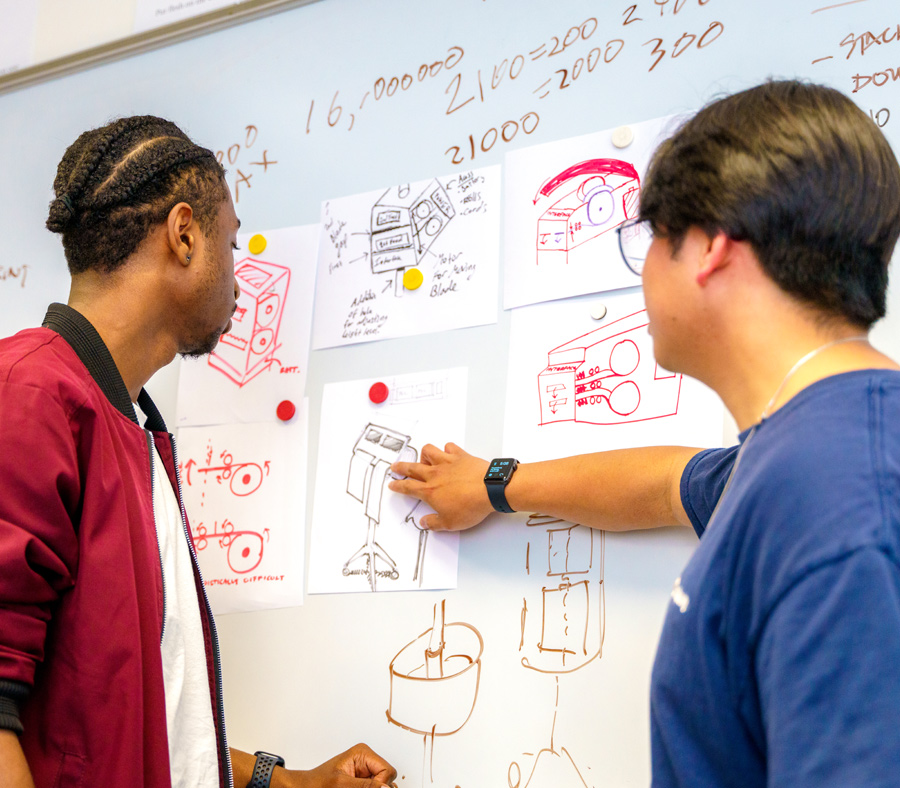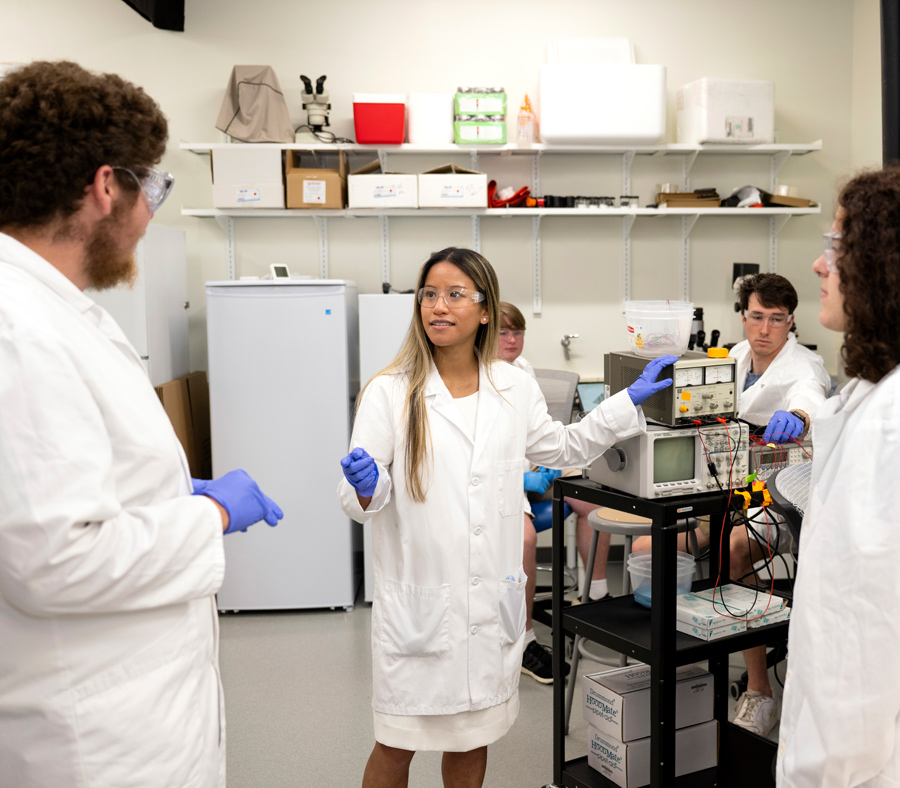Bucknell Engineering Alumni Association
Jill Baumbach ’14, civil engineering
Jayne Beckmann ’14, chemical engineering
Jordan Berger ’17, chemical engineering
Janet Meyer Boyd ’81, P’17, mechanical engineering (Executive Committee Member; Membership & Nominations Committee Chair)
Monica Brzozowski ’18, mechanical engineering
Laura Cook ’11, M’11, chemical engineering
Christina Garman ’11, computer science and mathematics
Kat Wiley Gebreselassie ’14, chemical engineering
Megan Grossman ’19, chemical engineering
Jeff Gum ’78, electrical engineering
Kellen Haile ’18, mechanical engineering
Marc Henry ’09, M’10, chemical engineering (Executive Committee Member; Student Engagement Committee Co-chair)
Nancy Ingabire Abayo ’19, civil engineering and geology
Rob Jerman ’78, chemical engineering
Rick Kleinert ’74, electrical engineering
Joe LaBarca ’76, P’07, chemical engineering
Jessica Litten ’16, biomedical engineering
Forrest Lysinger ’00, M’06, mechanical engineering
Sandra Madanat ’21, biomedical engineering and management for engineers (Executive Committee Member; Student Engagement Committee Co-chair)
Anthony Mariniello ’90, P’25, chemical engineering (Executive Committee Member; President-elect)
Meredith Menzel Jones ’13, civil engineering and anthropology
Megan Munter ’21, electrical engineering
Darryl Novak ’63, mechanical engineering
Winnie Okello ’10, civil engineering (Executive Committee Member; Communications Committee Chair)
Brian Picarillo ’18, mechanical engineering
Helen Reetz ’78, civil engineering (Executive Committee Member; Alumni Engagement Committee Chair)
Jeff Rockwell ’07, computer science (At-large Executive Committee Member)
Christa Rotolo ’11, civil engineering and management for engineers
Amanda Shapiro ’14, chemical engineering (Executive Committee Member; President)
Andrew Solomon ’12, mechanical engineering
Erin Threet ’06, civil engineering
John Venarchick ’00, electrical engineering
Aditi Vijayvergia ’21, M’23, electrical engineering
Ezra Yarnell ’98, M’00, civil engineering
MAJORS
Chemical Engineering
Civil Engineering
Computer Engineering
Computer Science & Engineering
Electrical Engineering
Environmental Engineering
Mechanical Engineering

Bucknell’s College of Engineering continues to be one of the premier undergraduate destinations for engineering education, offering an exceptional experience for more than 700 students. We take pride in our hands-on learning opportunities, innovative programs that foster interdisciplinary thinking and a faculty of experts who are leaders in their fields. Our commitment to excellence ensures that our students are well-prepared to tackle the challenges of the future.
I invite you to explore the following pages and learn more about the students, faculty and staff at the heart of our college. Their talent and energy amaze me every day, and the stories you will read here are just the tip of the iceberg of the extraordinary things happening in our classrooms, labs and beyond.
Thank you for your support. ’ray Bucknell!
BRAD PUTMAN
Richard E. Garman Dean of the College of Engineering
Where Innovation Meets Opportunity

Engineering Solutions
Applicants to Bucknell’s GCSP select from four themes — sustainability, health, security and social access — that they would like to research and engage with throughout their college careers. With mentorship from faculty, scholars take part in multidisciplinary and multicultural research programs and extracurricular activities that help them develop a robust portfolio centered on their theme of focus.
Devising solutions to “grand challenges” goes beyond applying engineering skills; students need to develop cultural, political, social and ethical awareness.
Brennah Kennedy ’26, electrical engineering, chose to focus on sustainability while conducting research with Richard E. Garman Dean of the College of Engineering Brad Putman. As part of a virtual exchange course with students and faculty from An-Najah National University in Nablus, Palestine, Kennedy studied how to harness energy from pavement. In addition, she interned with the Office of Campus Sustainability to further hone her skills.
“My goal in pursuing this theme is to promote the development of new, alternative energy sources and promote more access to energy in rural and underdeveloped areas,” she says.
As a Grand Challenges Scholar and an engineering consultant for the Bucknell Small Business Development Center, Jose Juarez ’24, mechanical engineering, wanted to translate his theoretical learning into practical applications that could have a social impact globally.
“The Grand Challenges Scholars Program motivated me to perform well in my engineering curriculum,” says Juarez. “It raised my awareness of the social issues that people are facing and the role I can play as a mechanical engineer in implementing my skills to help communities in need.”

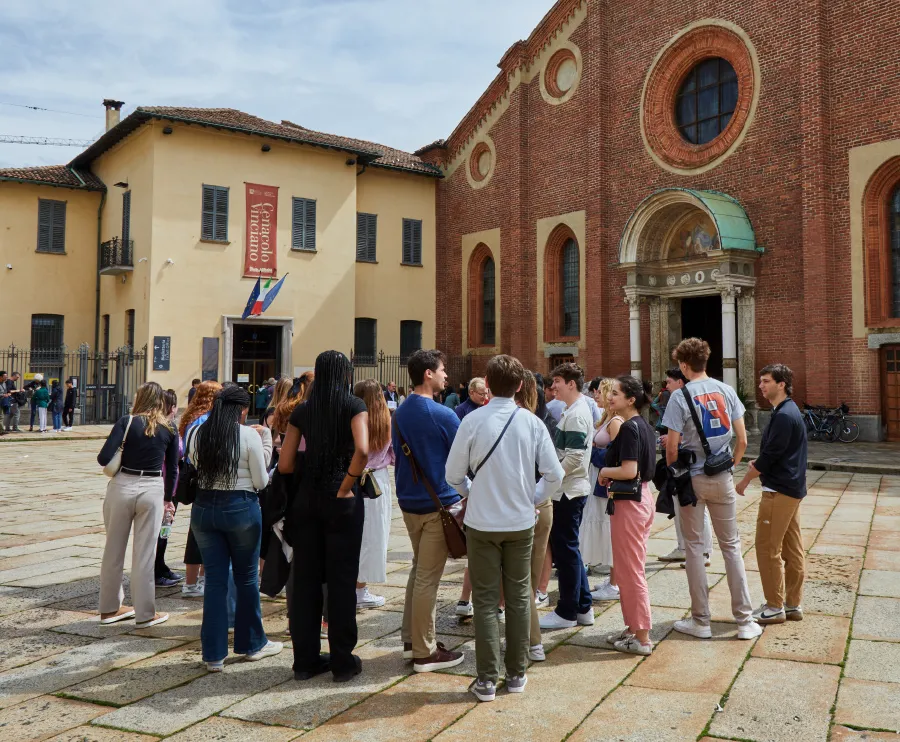
learning in a Global Context
ENGR 290, Engineering in a Global & Societal Context, is a distinctive three-week program that enables engineering students to participate in a study abroad experience without interrupting their academic schedule. In May, 30 students traveled to Italy and France to follow in the footsteps of one of the western world’s greatest polymaths and thinkers: Leonardo da Vinci.
Professor Emeritus Keith Buffinton, mechanical engineering; and Professors Lisa Perrone, Italian studies; Felipe Perrone, computer science; and Margot Vigeant, associate vice president of special initiatives, provided interdisciplinary insights.
“Da Vinci is a great example of things that can be accomplished from a technical, artistic and cultural point of view,” Buffinton says. “It’s hugely important for us as individuals — whether you’re an engineer or not — to understand the ways in which business, engineering and technology intersect across cultures on a global scale.”
leveling the playing field
Inspired by Bucknell’s 2023 First-year Common Reading, Sitting Pretty: The View from My Ordinary Resilient Disabled Body by Rebekah Taussig, and her own desire to make gaming more accessible, Le partnered with Professor SingChun Lee, computer science, during her first year on campus. Together, they are designing a prototype controller that could allow players to control their gameplay using features like gesture recognition or voice commands to optimize usability.
This past spring, Le collected data about muscle movement patterns from an electromyography sensor, and then fed that data into an AI system to interpret and translate those patterns into a usable interface. “This data will contribute to the future of fields like human-computer interaction and assistive technology,” she says.
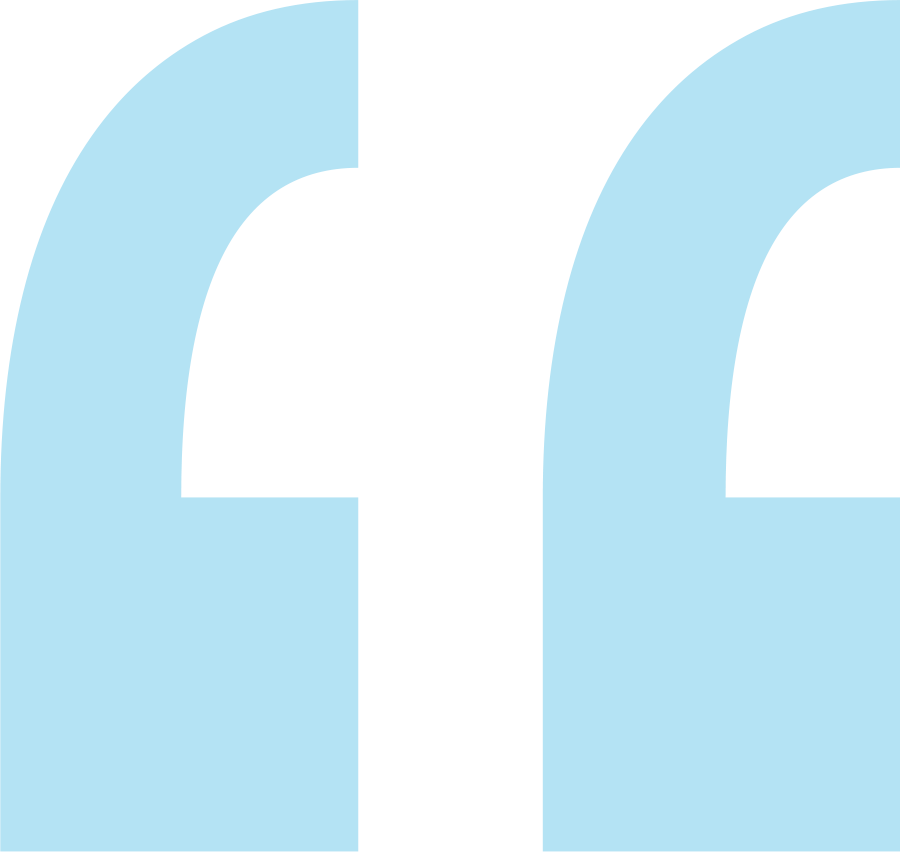
Thu Le ’27
computer science & engineering
Exploring Beyond Disciplines

Improving Data Fluency
Potential and Pitfalls
Modernizing Scheduling
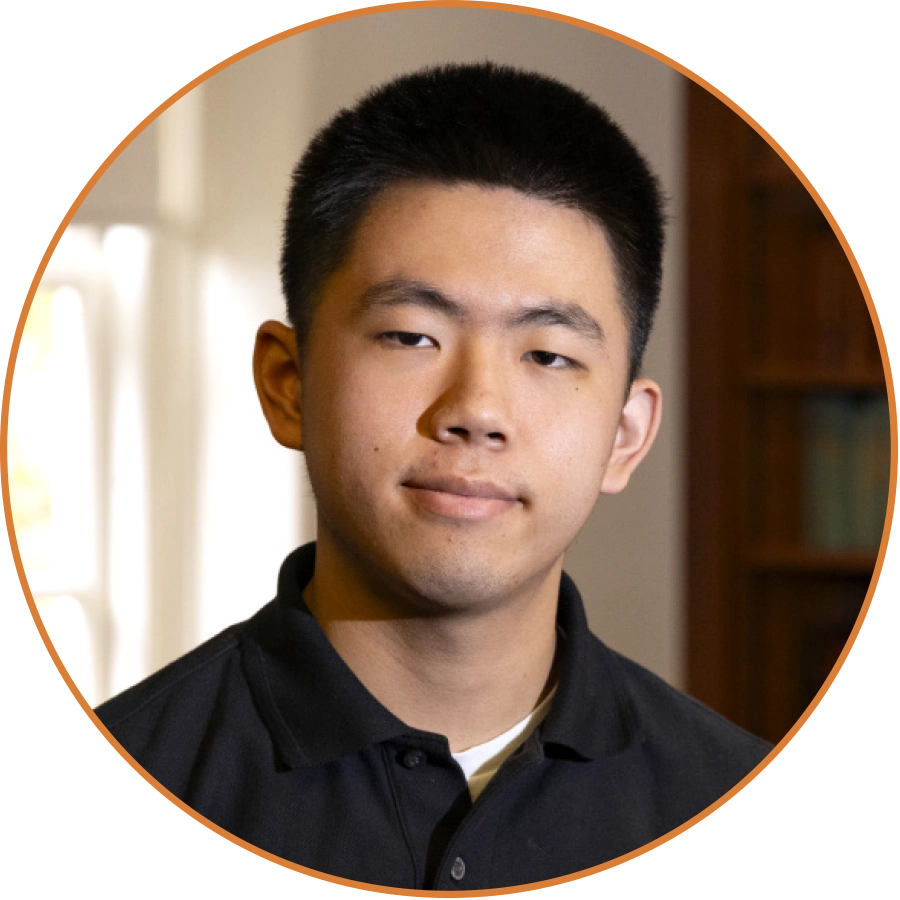

Modernizing Scheduling
Entrepreneurial Minds at Work
Good chemistry


Director of the Perricelli-Gegnas Center for Entrepreneurship & Innovation
Learning by Doing
Proud’s mentorship also helps young entrepreneurs discover the depth of their own knowledge and reframe their development processes. By teaching students to approach projects through the lenses of desirability, viability and feasibility, Proud helps them come up with solutions that work. “Students know far more than they think they do,” Proud says. “I give them the freedom to explore and to fail, reinforce what they know, and invite them to test their ideas against the world — and that’s where the magic happens.”


Learning by Doing
Proud’s mentorship also helps young entrepreneurs discover the depth of their own knowledge and reframe their development processes. By teaching students to approach projects through the lenses of desirability, viability and feasibility, Proud helps them come up with solutions that work. “Students know far more than they think they do,” Proud says. “I give them the freedom to explore and to fail, reinforce what they know, and invite them to test their ideas against the world — and that’s where the magic happens.”
Fortifying Connections
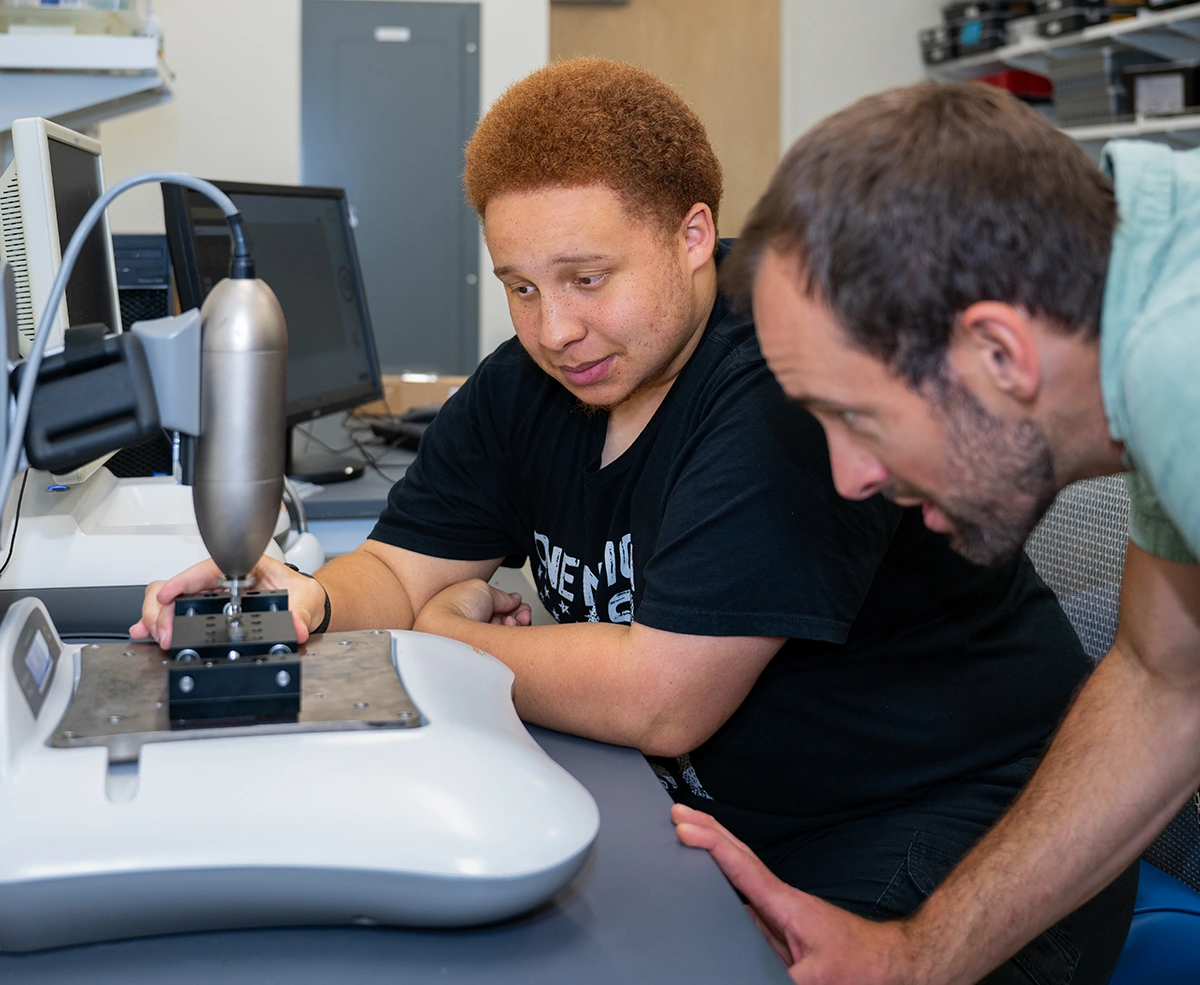


mechanical engineering
Driving Progress in Healthcare
revolutionizing orthopedics
Professors Benjamin Wheatley (below, left), mechanical engineering, and Kenny Mineart (above, right), chemical engineering, have teamed up with Dr. Mark Seeley, a Geisinger orthopedist, to improve the process. Wheatley is investigating whether clinicians can use smartphone video and AI to analyze gait and design a custom orthotic efficiently. Meanwhile, Mineart aims to optimize the physical makeup of orthotics, using gel materials and adjustable wedges that can be fine-tuned.
advancing neuroscience
improving diagnostics
Bridging the Gap Between Classroom and Industry
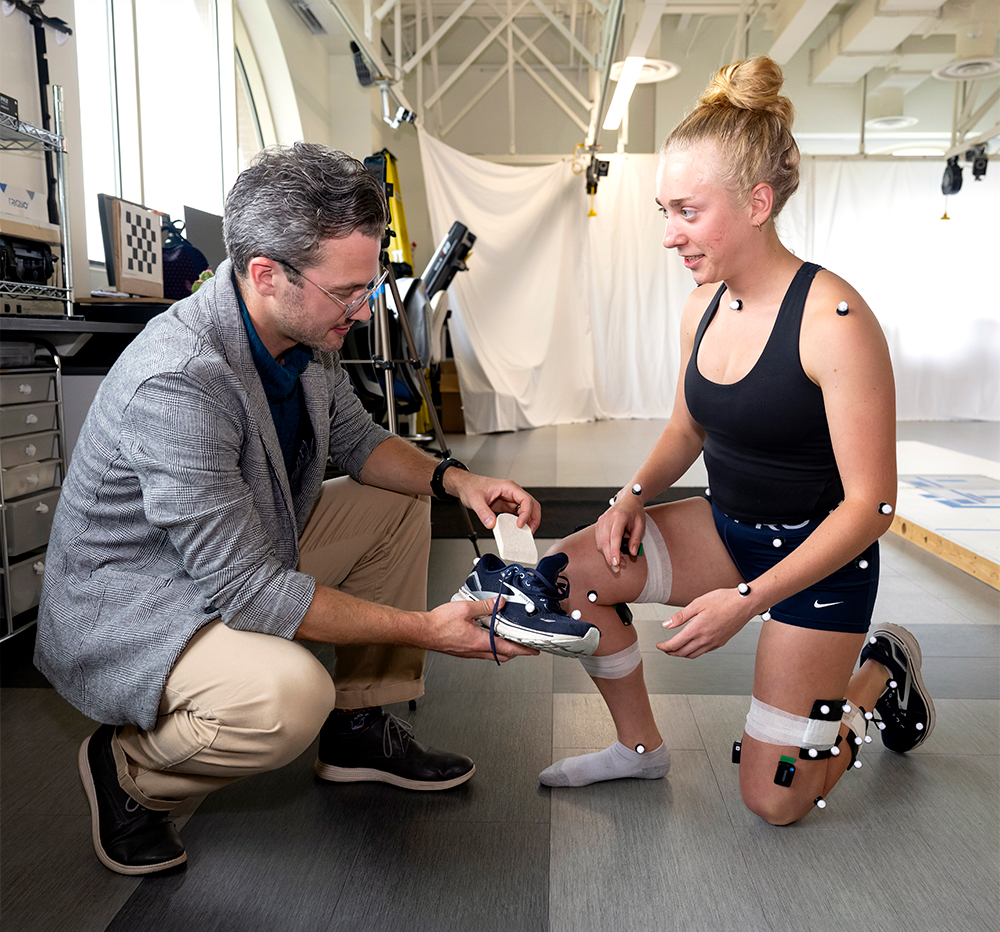
Distinctive by Design



Exploring the Social Impact of Robots
While human-robot interaction (HRI) can improve efficiency, convenience and safety, it also raises complex ethical, social and economic considerations — all topics that are up for open discussion in Bucknell’s RoboLab.
Sean O’Connor ’26 (above, center), a computer science & engineering major, and Professor Felipe Perrone (above, left), computer science, launched RoboLab in spring 2023 as a way to bring together a community of students interested in having a dynamic environment for intelligent, important and creative conversations about the future of technology.
Created for and driven by students, RoboLab encourages the exploration of scholarship surrounding social robotics and HRI. O’Connor, who has conducted independent research on HRI and robotics programming with Perrone since his first semester on campus, helped bring the discussion group to life. “I knew there were other students with similar interests,” he says. “And I really needed more people to bounce ideas off.”
RoboLab members review scholarly papers and other media on the topic of robots in society, and have discussions that resonate across the wide-reaching subject of HRI. They give presentations on new technologies and theories and bond over their shared curiosity about how to make robotics more accessible.
“It’s tough to establish authentic community-building around nerdy academic topics like this,” says Perrone. “But it’s great to watch students step up and shine as they guide group engagement and connect with others.”
The broad appeal of RoboLab has resulted in a diverse group representing a wide array of majors. “Students from every corner of the Bucknell student body find their way to our lab,” he says. “There is no prerequisite — no qualifying factor to join other than curiosity and an interest in robots.”
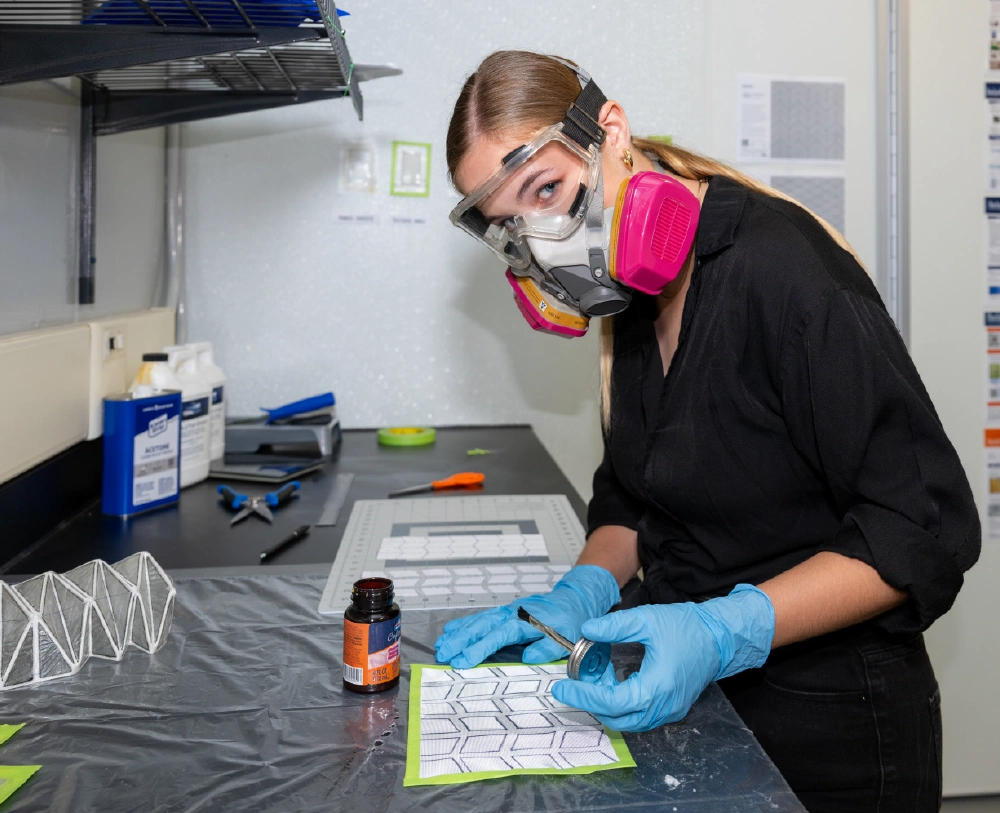
Capitalizing on the Experience
Powell is active in a number of advisory and leadership roles throughout the college. She participates in the Engineering Success Alliance, is on the executive board of the Grand Challenges Scholars Program and served as a mentor for the EXCELerator program. In addition, she makes her mark across campus through her roles as a resident adviser, symphonic band member and artist. She leans into each opportunity and thrives on connection.
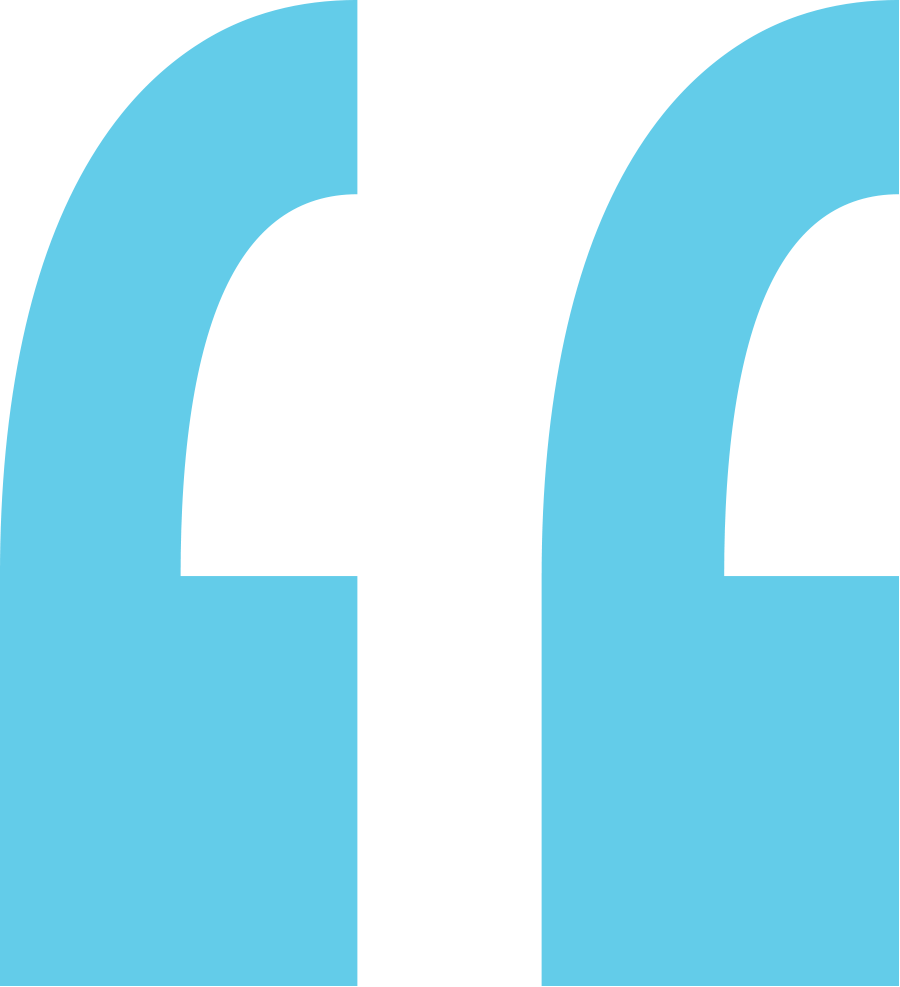
civil engineering
In her first year, she contributed to community-driven sustainable transportation initiatives with Bucknell’s Center for Sustainability & the Environment (BCSE), and continued with the BSCE the following summer to research the use of anaerobic digestion for renewable energy on farms throughout Pennsylvania. Recently, she joined Professor Kelly Salyards’ lab in civil & environmental engineering to pursue her goal of becoming a structural engineer.
In summer 2024, Powell put her experiences to work. Through yet another Bucknell connection — this one with Allie Lovallo ’15 — she secured an internship with Clark Construction Group in Washington, D.C., where she worked on a project to repurpose an early 20th-century streetcar facility to house the city’s new all-electric bus fleet.
Leading by Example
The College of Engineering’s faculty are renowned experts who publish cutting-edge research with real-world implications. They’re also committed educators and mentors who share their expertise to prepare Bucknell students to become leaders and innovators in their fields.

Innovation in Action

biomedical engineering
Improving Cancer Treatments
“Unlike chemotherapy, which is toxic to the cancer and also toxic to the patient, immunotherapy helps the body do its own battle against cancer cells,” says Baish. “The amazing thing is it can be 100% effective, but it doesn’t work for everybody. That’s really where the research comes in. How can we make it work better and for more people?”
In collaboration with Massachusetts General Hospital, Baish uses mathematics and computational models to plan experiments and interpret data from preclinical trials. By modeling the lymphatic system, Baish hopes to predict how immunotherpay might affect a patient before proceeding with treatment.

biomedical engineering
Advancing Regenerative Medicine

“The big question is: How does ultrasound advance healing? Does ultrasound stimulate blood vessel growth?” says Boerman. Blood vessel cells and immune cells both play a role in healing. “The second aim of this grant will be to conduct robust bioinformatic analysis on the entire transcriptome — all 26,000 genes — to determine how cells are being impacted.”
The NSF grant provides Boerman and her lab students the resources to conduct research with the potential to impact real lives.
“Ultrasound is incredibly affordable,” says Boerman. “Scientifically, it’s exciting because it has a lot of promise to non-invasively advance healing in many ways.”
Propelling Discoveries In Engineering and Beyond
Professor Karlo Malaga, biomedical engineering, “Effect of Anisotropic Brain Conductivity on Patient-Specific Volume of Tissue Activation in Deep Brain Stimulation for Parkinson Disease,” IEEE Transaction on Biomedical Engineering, 2024
Professor Alan Marchiori, computer science, with Tsugunobu Miyake ’25, computer science & engineering, “A Continuous Turbidity Meter with Synchronous Detection,” IEEE Applied Sensing Conference, 2024
Professor Robert Nickel, electrical engineering, “Deep Learning-Based Claim Matching with Multiple Negatives Training,” ACL Anthology, 2023
Professor Anne Ross, computer science, “Beyond HCI: The Need for Accessibility Across the CS Curriculum,” Proceedings of the 55th ACM Technical Symposium on Computer Science Education, 2024
Professor Nicholas Tymvios, civil & environmental engineering, “Impacts of Work Setting and Task Complexity on Mental Workload and Safety: An Experimental Study,” Construction Research Congress, 2024
Professor Margot Vigeant, chemical engineering, “Food for Thought: Pucker Up!” Chemical Engineering Education, 2023
Professor Brandon Vogel, chemical engineering, with Nolan Morrison ’22, “Factors That Influence Base-catalyzed Thiol-ene Hydrogel Synthesis,” Gels, 2023
Professor Constance Ziemian, mechanical engineering, and Professor Ron Ziemian, civil & environmental engineering, with Marly McClintock ’23, “Experimental Investigation of Torsional Strengths of Aluminum Alloys: Circular and Rectangular Solid Sections,” Structures, 2024
Primary Funding Initiatives
2023 Rankings
Engineering
Engineering
Engineering
Engineering
Financial Aid
(need-based, merit or a combination of both)
(including grants, scholarships, loans and outside aid)
average federal student loan debt for the Class of 2023 among those who borrowed
(compared to about $30,000 nationally)
Giving Impact


- Faculty, staff and student professional travel to conferences and research presentations
- Untenured faculty summer research
- Capstone senior design projects where students applied their engineering skills to develop innovative solutions presented by real-world clients
- Renovation, refurbishment and upgrades of teaching and research labs
- National Engineers Week events and celebrations
- Dana 213 computer lab renovation
Funds Raised
Fiscal Year 2023
Donors
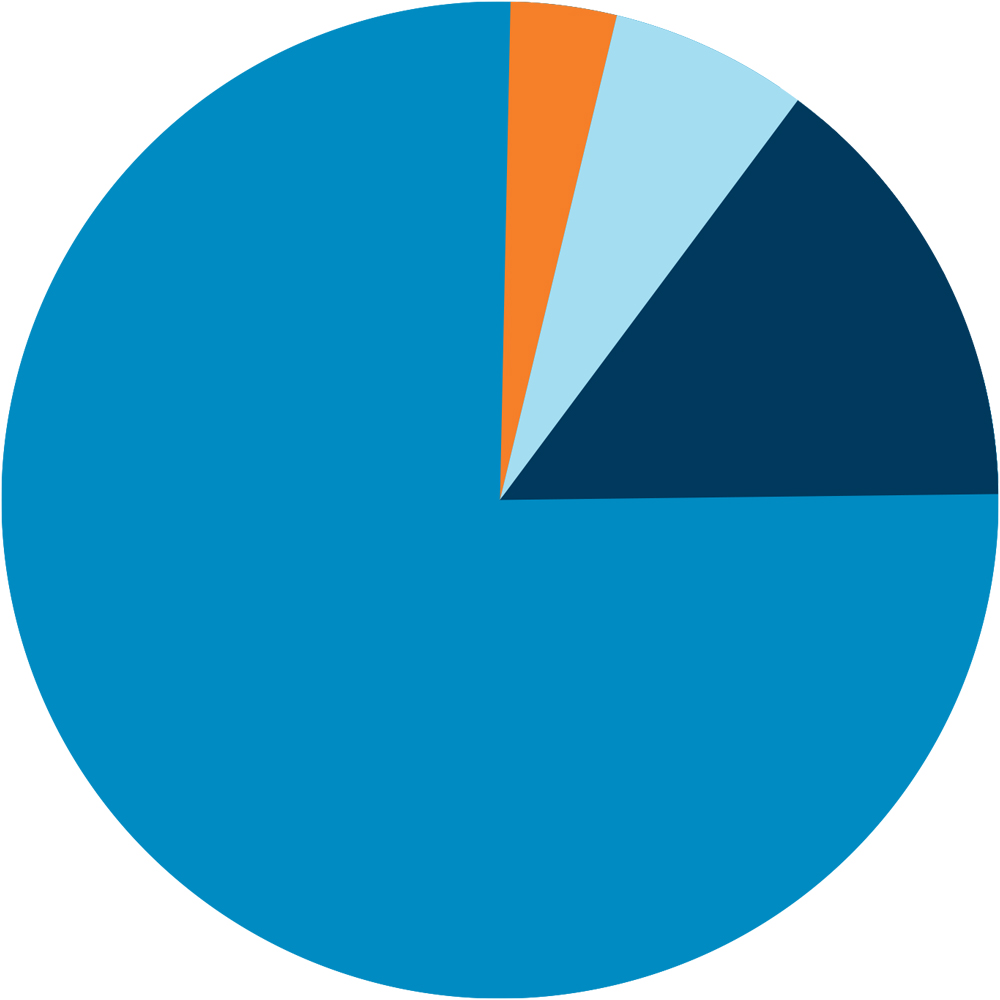
- Alumni: $1,675,290
- Corporations, foundations & organizations: $77,799
- Parents & families: $114,200
- Others*: $402,516
*Students, staff and other individuals
College Stats


First-year retention rate

Six-year graduation rate

Four-year graduation rate

29% admit rate
196* ENROLLED
24% enroll rate

Male

Female

Students of color



Software Engineer
Netflix, Los Angeles
Class of 2023 Outcomes

employed, in graduate school or volunteering

Average Starting Salary
Starting Salary by Major
Biomedical Engineering
Chemical Engineering
Civil Engineering
Computer Engineering
Computer Science & Engineering
Electrical Engineering
Environmental Engineering
Mechanical Engineering
Top Employer Industries
Engineering/
Manufacturing
Construction
Computer Science/
Technology
Consulting
- The Engineering Fund
- BEAA Transformative Engineering Education Fund
- Engineering Success Alliance Program Endowment

Invest in Excellence: give.bucknell.edu/engineering

